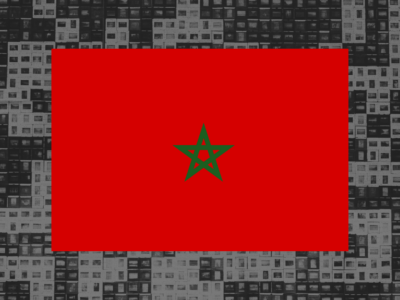Stories about Internet governance
Turkey bans access to 16 VPN providers
Pundits say, the goal of the recent ban is to prevent access to already blocked news websites in the country that were only accessible with VPN services.
Unfreedom Monitor: Civic Media Observatory findings report
The Unfreedom Monitor is a project to analyse, document, and report on the growing phenomenon of the use of digital communications technology to advance authoritarian practices.
Unfreedom Monitor Report: Access
Advox research into internet access, shutdowns and interruptions is now in a report. Read an excerpt and download the full pdf.
Hong Kong Court asks: Who are the defendants of the protest anthem injunctions?
"Even if [the injunction] successfully restrained Google, it would only prohibit its circulation within Hong Kong. The SAR government has to apply an injunction in the U.S.A to take down the videos globally […]"
Unfreedom Monitor Report: Kenya
Advox research into digital authoritarianism in Kenya is now in a report. Read an excerpt and download the full pdf.
Unfreedom Monitor Report: Hungary
Advox research into digital authoritarianism in Hungary is now in a report. Read an excerpt and download the full pdf.
Kenya and the fallacy of trading individual privacy for national security
When the right to privacy is fractured on a national scale by actions such as surveillance, a myriad of other human rights suffer in a sort of domino effect.
Unfreedom Monitor Report: Philippines
Advox research into digital authoritarianism in the Philippines is now in a report. Read an excerpt and download the full pdf.
Unfreedom Monitor Report: Ecuador
Advox research into digital authoritarianism in Ecuador is now in a report. Read an excerpt and download the full pdf.
Unfreedom Monitor Report: Kazakhstan
Advox research into digital authoritarianism in Kazakhstan is now in a report. Read an excerpt and download the full pdf.
Unfreedom Monitor Report: Cameroon
Advox research into digital authoritarianism in Cameroon is now in a report. Read an excerpt and download the full pdf.
Unfreedom Monitor Report: Hong Kong
Advox research into digital authoritarianism in Hong Kong is now in a report. Read an excerpt and download the full pdf.
Eight months of ‘fakes’ and ‘discreditation’: How the Kremlin’s new laws against anti-war dissent are applied online
Censorship and political repression are not new to Russia, but, in 2022, they reached new heights. Alongside new digital tools, new legislation allows the state to expedite and industrialise the repression of dissidents.
Turkish lawmakers ratify new disinformation bill
Aimed to combat fake news and disinformation, the 40-article legislation passed by Turkey's parliament, is a threat to freedom of speech say critics of the bill.
Can citizens of democracies still trust the law? A GV Insights discussion
The flip side of regulating the internet is that this enables the state to mobilise itself and erase the existence of these communities and their identities from popular culture and discussion.
Unfreedom Monitor report: Morocco
Advox research into digital authoritarianism in Morocco is now in a report. Read an excerpt and download the full pdf.
Unfreedom Monitor Report: Egypt
Advox research into digital authoritarianism in Egypt is now in a report. Read an excerpt and download the full pdf.
LIVE on September 15: Can citizens of democracies still trust the law?
As digital authoritarianism spreads globally, is the law, one of the pillars of democracy, being used to undermine people's rights?
Unfreedom Monitor report: Zimbabwe
Advox research into digital authoritarianism in Zimbabwe is now in a report. Read an excerpt and download the full pdf.
Unfreedom Monitor Report: Russia
Advox research into digital authoritarianism in Russia is now in a report. Read an excerpt and download the full pdf.
























